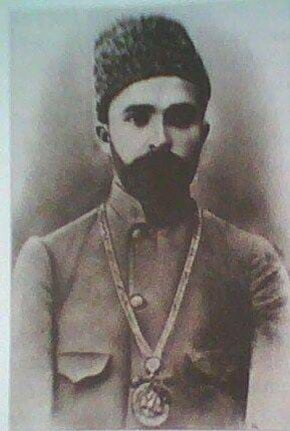
Abbasgulu Bey Khanbaba Bey Oghlu Shadlinski was born on February 24, 1886 in the village of Big Vedi, Iravan province. He lost his father when he was a child.
He graduated from a two-class Russian-Tatar school.
In 1902, his grandfather cultivated a small plot of land. The revolutions of 1905–1907 in Russia and 1905–1911 in Iran had an important impact on the formation of his social and political outlook. After the February revolution (1907), Shadlinski devoted his life to the struggle for the people’s cause and sympathized with the communists.
At the beginning of 1918, in the context of genocides by Dashnak-Armenian armed groups against Azerbaijanis in Nakhchivan, Iravan, Derelayaz, Zangezur and other areas, a voluntary people’s association against the Armenian-Dashnak bandits was formed by Shadlinski in Vedi, which later became the “Red Camp”.
In 1918–1920, he was the commander of the volunteer units that fought against the Dashnaks in Vedibasar. In July 1920, by the order of Shadlinski, the population of Vedibasar and Zangibasar crossed over to the territory of Iran, and first took a position near the city of Khoi, and then around the city of Marand.
After the declaration of Soviet power in Nakhchivan on July 28, 1920, he accepted the invitation of the Military Revolutionary Committee and Nariman Narimanov and came to Nakhchivan on September 17 with a group of 200 people.
The “Red Camp” group led by him showed heroism in suppressing the Dashnak uprising in Iravan from February to early April 1921. 19 members of the Red Camp, led by Shadlinski, were awarded the Order of the Red Banner of the Armenian SSR for their bravery in the battles with the Dashnaks.
In the summer of 1921, Shadlinski’s fighters showed heroism in defeating the Dashnak bandits in Derelaez and Zangezur.
After that, Shadlinski, who returned to Vedi, worked in a number of responsible economic positions in Armenia in 1922–1928, and then was appointed the head of the construction of the Davali cement factory.
He was killed by his enemies in February 1930.



